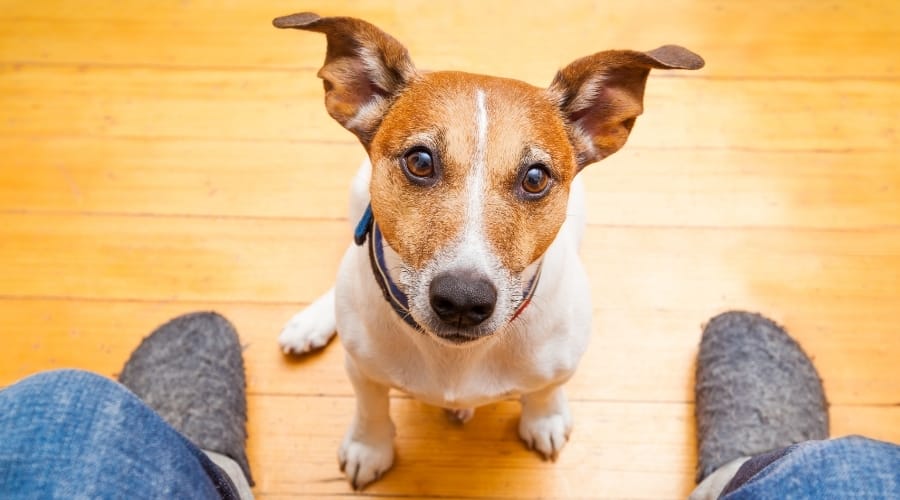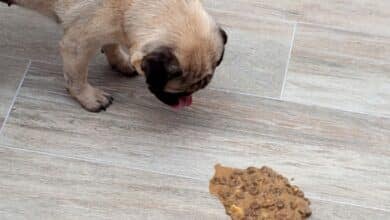Why Do Some Dogs Keep Licking & Smacking Their Lips? Hint: It’s Not Always About Food
When you purchase through links on our site, we may earn a commission. Here’s how it works.
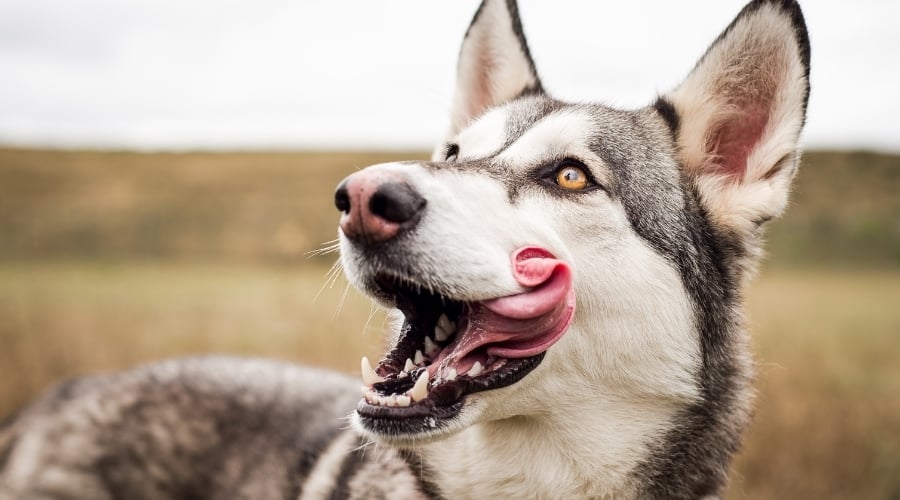
Dogs do many things that leave us scratching our heads: circling before they poop, barking at invisible squirrels, and, yes, licking and smacking their lips like they just tasted imaginary peanut butter.
Table of Contents
While occasional lip licking is no big deal, a dog continuously licking his lips or smacking his lips often could be a sign that something’s not quite right.
Why Does My Dog Smack His Lips? 8 Possible Reasons
Is it dinner time? A toothache? Existential dread?
Whether your dog is smacking his lips during the day, at night, or after meals, the behavior may be more than a harmless quirk.
I’ll dive into the curious behavior of dog lip-smacking and what your furry friend might be trying to tell you about his physical or emotional well-being.
1. Nausea Or Digestive Upset
One of the most common reasons dogs smack their lips is nausea. If your pup ate something questionable, they might lick or smack their lips as a warning sign before a little tummy drama unfolds.
Dogs with an upset stomach might also excessively swallow, drool, pace, or become rigid just before vomiting. Although it’s often short-lived, chronic cases of nausea or vomiting warrant a veterinary visit.
2. Dental Or Mouth Issues
Another big culprit can be mouth discomfort. Dogs with dental disease, broken teeth, inflamed gums, or even something stuck in their teeth or the roof of their mouth may try to ease irritation by licking and smacking.
Think of it as the canine version of shifting your jaw when something doesn’t feel quite right. A veterinary oral exam is a smart next step if your dog continuously licks his lips, especially during or after eating.
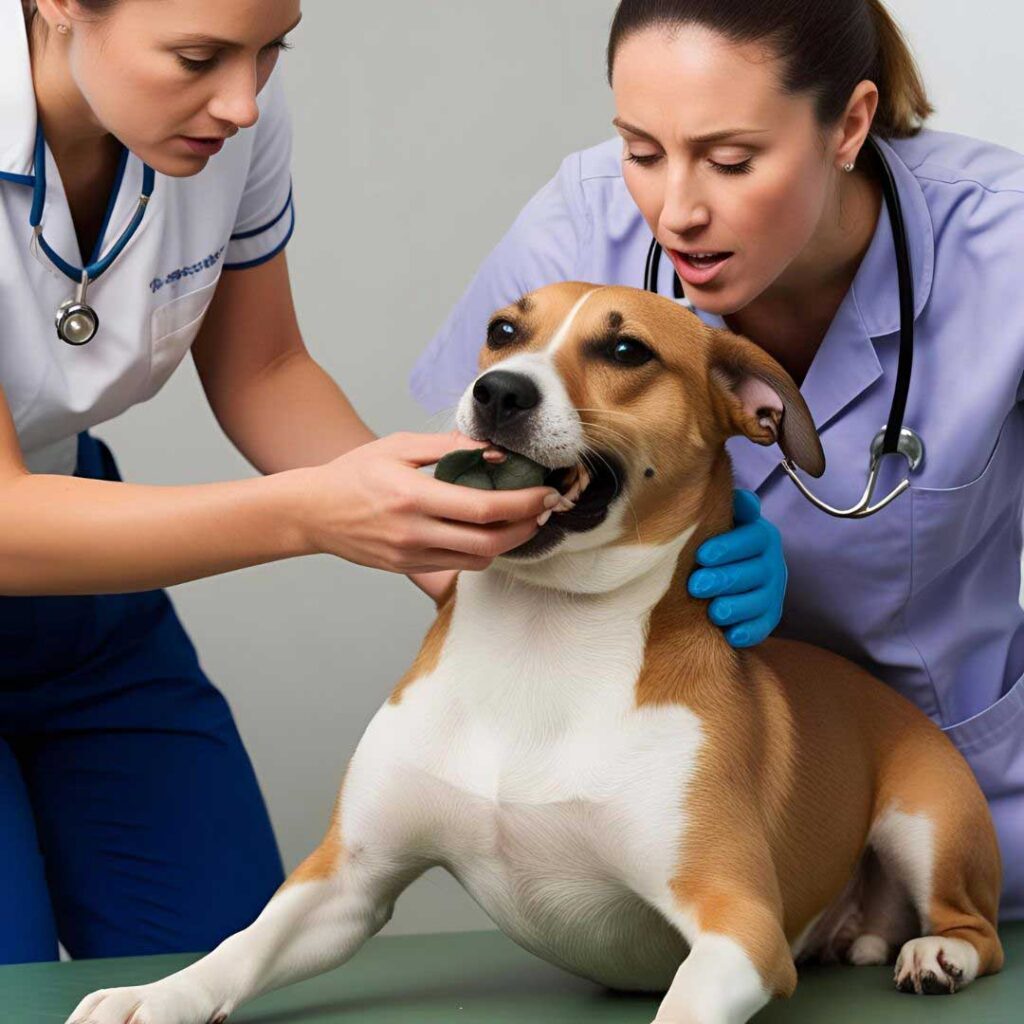
3. Dry Mouth Or Dehydration
A dry mouth can turn any dog into a professional lip-smacker. If your dog keeps smacking his lips, check to make sure he’s staying hydrated — especially during hot days or if they’re on medication that causes dry mouth. Dogs may lick and smack their lips in an attempt to generate more saliva.
Although usually nothing serious, a persistent dry mouth paired with other symptoms (fatigue, sunken eyes, loss of appetite) should prompt a vet check as soon as possible. Dogs can get dehydrated easily, which can quickly become a medical emergency.
4. Skin Allergies or Irritations
Irritated skin around the mouth from allergies, bug bites, bee stings, or mystery substances they stuck their face in can cause your dog to continuously lick his lips as a way to deal with the itchiness. Look for redness, swelling, or your dog rubbing their face on the carpet.
If you suspect your pup could have sensitivities to a food ingredient or something in his environment, you may want to consider doing an at-home dog allergy test to help identify the offending allergen.
5. Anxiety Or Stress
Ever notice your dog smacking his lips during fireworks, vet visits, or when you say the dreaded word “bath?” That could be dog anxiety “talking.” It may occur during unfamiliar or fearful situations, loud noises, or even quiet moments when your dog is trying to self-soothe.
If you’re asking “why is my dog smacking his lips at night?,” it might be nighttime anxiety or restlessness. Dogs, like people, can feel more vulnerable or overstimulated at night, especially in unfamiliar environments or during changes in routine.
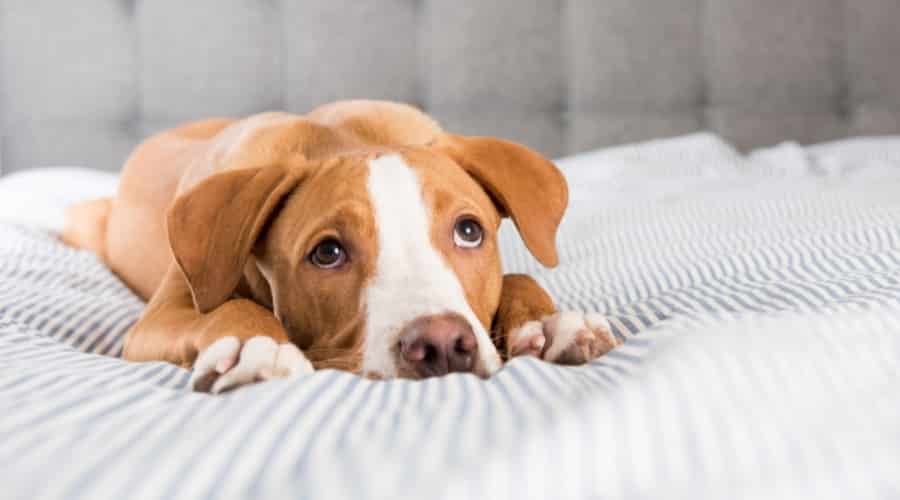
6. Obsessive-Compulsive Behavior
If your dog keeps licking his lips throughout the day without any obvious trigger, it could be a behavioral issue. Dogs experiencing chronic boredom, anxiety, or past trauma sometimes develop repetitive habits — similar to how people might fidget or tap their fingers.
These behaviors can become ingrained over time. Environmental enrichment, more exercise, and professional behavioral support may be needed if the habit is interfering with daily life.
7. Seizures Or Neurological Issues
Although rare, lip smacking can be a symptom of partial (focal) seizures. These seizures may not involve convulsions but can present as odd, repetitive movements — such as air licking, staring, or lip smacking.
If your dog is licking his lips and also appears disoriented, unresponsive, or unusually still, consult your veterinarian as soon as possible. Neurological issues can be subtle but serious.
8. Comfort And Habit
In some cases, lip smacking isn’t a problem at all. Just like people might sigh or adjust their position when settling down, dogs might smack their lips when comfortable as part of their winding-down ritual. If your dog is relaxed, calm, and showing no signs of discomfort, this is likely nothing to worry about.
However, it’s important to distinguish this casual behavior from more intense or frequent lip licking that could indicate a problem.
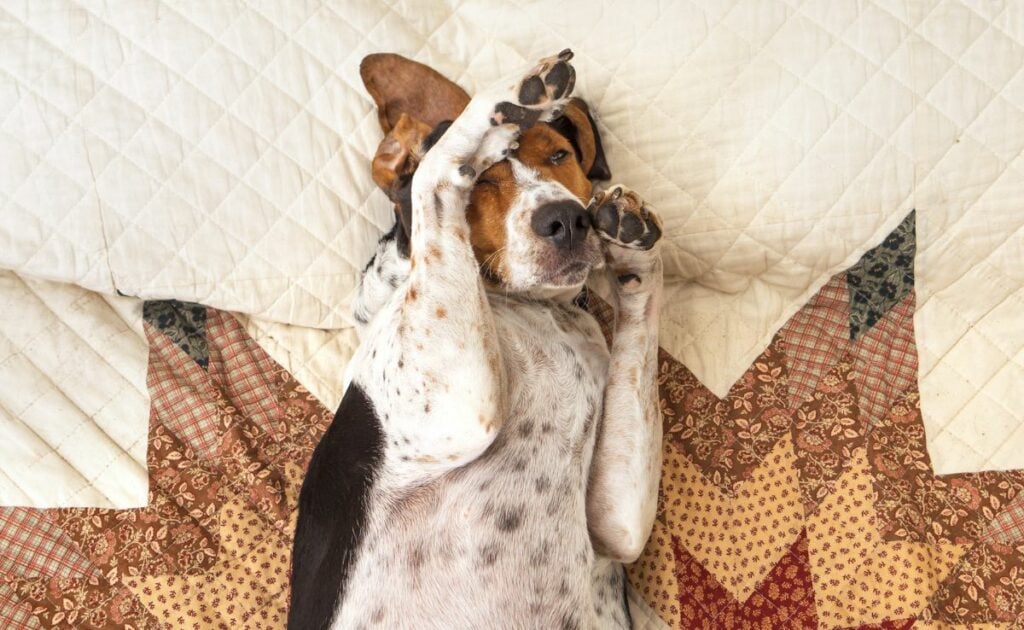
When Should I Contact My Veterinarian?
If you’re still wondering, “Why does my dog smack his lips all the time?,” it’s time to stop guessing and get a professional opinion.
You should call your vet if:
- Your dog keeps smacking his lips constantly or suddenly
- It’s paired with vomiting, drooling, or appetite loss
- It happens at strange times (like repeatedly at night)
- Your dog seems disoriented or unusually quiet
- It’s interfering with sleep or daily routines
- You suspect pain or discomfort in the mouth
Lip-smacking on its own isn’t necessarily a cause for alarm, but persistent or sudden changes in behavior should always be investigated by your veterinarian.
What Can I Do At Home?
If your dog constantly licking his lips is becoming a concern, here are a few steps you can take:
- Monitor and record: Note when the behavior happens (e.g., after meals, during storms, before bed).
- Check for physical causes: Look inside the mouth (if safe to do so) and examine the skin around the face.
- Improve hydration: Ensure your dog has access to clean, fresh water at all times.
- Address stress: Create a calm environment, especially at night, if anxiety may be a factor.
- Enrichment and engagement: Keep your dog mentally and physically stimulated to reduce compulsive behaviors.
When Pet Insurance Can Help
If your dog’s lip smacking seems off, trust your instincts and reach out to your vet. Some of the causes could end up being serious. Things like dehydration, seizures, and chronic anxiety can be expensive to treat. Pet insurance can help defray the costs of unexpected treatment and could provide the financial resources to save your dog’s life.
However, you will need to sign up as soon as possible since it will not cover pre-existing conditions. Use our free form below to get multiple quotes instantly.

